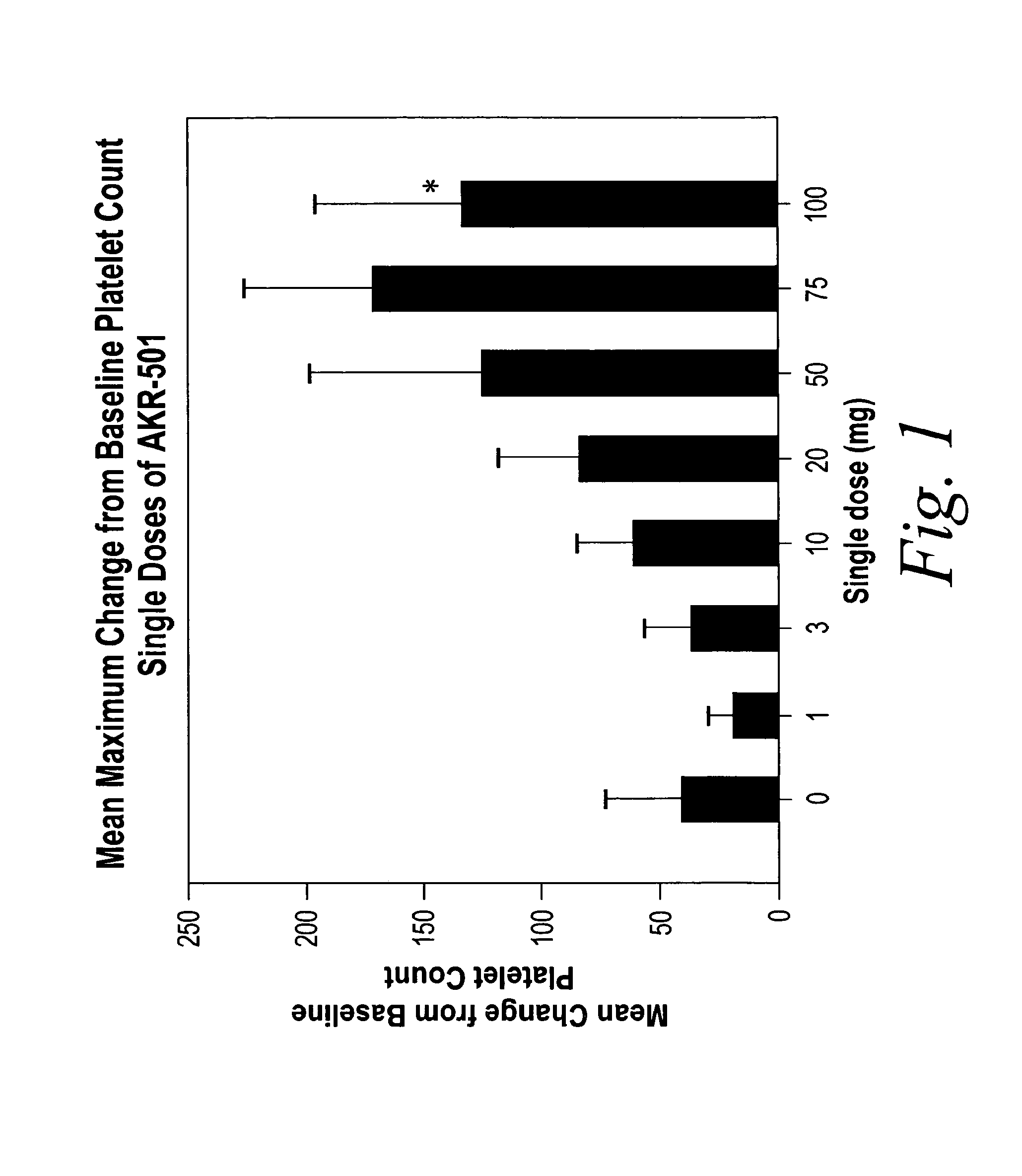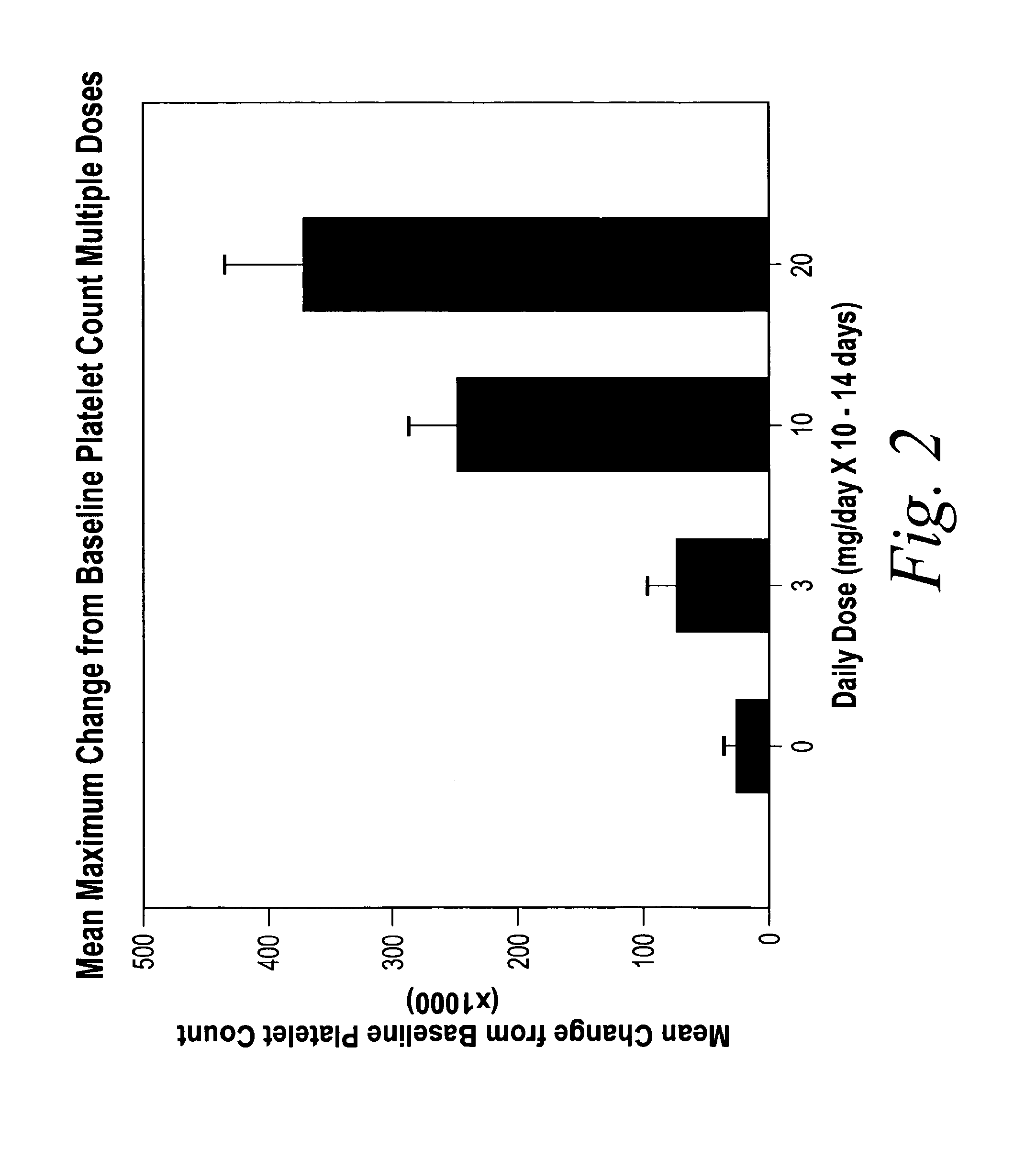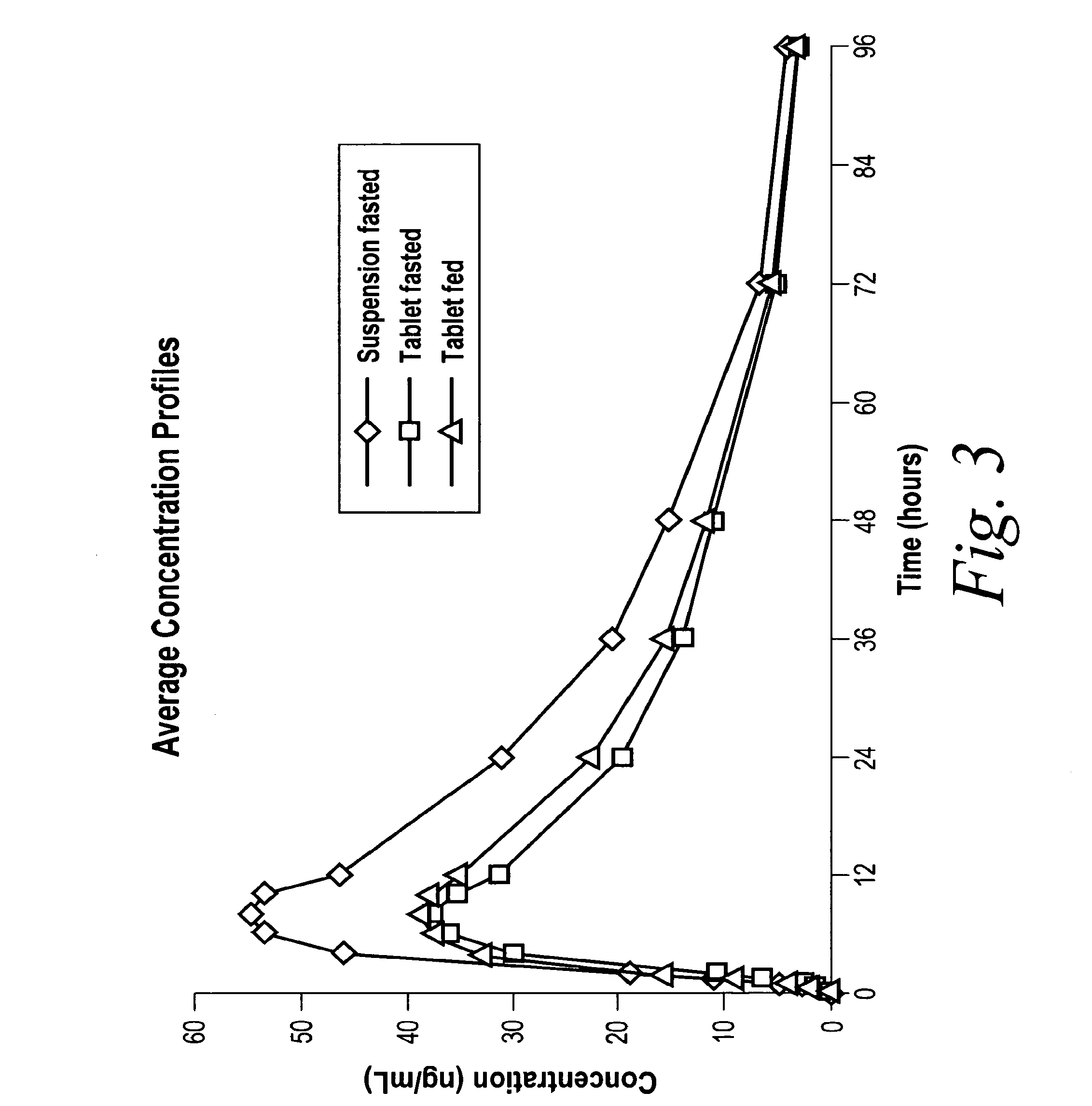Compositions and methods for increasing blood platelet levels in humans
a technology of human blood platelet and composition, applied in drug compositions, dispersed delivery, extracellular fluid disorder, etc., can solve the problems of increased risk of bleeding, thrombocytopenic purpura, and approximately 30% of platelet transfusions are associated with serious problems
- Summary
- Abstract
- Description
- Claims
- Application Information
AI Technical Summary
Benefits of technology
Problems solved by technology
Method used
Image
Examples
example 1
Single Dose Study
[0091]A single-center, randomized, double-blind, dose-rising study to determine the safety, pharmacokinetics, and pharmacodynamics of single doses of 1-(3-chloro-5-{[4-(4-chlorothiophen-2-yl)-5-(4-cyclohexylpiperazin-1-yl)thiazol-2-yl]carbamoyl} pyridin-2-yl)piperadine-4-carboxylic acid (Formula I) in normal healthy volunteers was performed. The starting dose of the drug of Formula I was 1 mg (expressed as free base). Successive dose cohorts received 3, 10, 20, 50, 75 and 100 mg. The drug substance in the form of the monomaleate salt was suspended in Ora-Plus® (purified water, microcrystalline cellulose, sodium carboxymethylcellulose, xanthan gum, citric acid, sodium phosphate, simethicone, potassium sorbate and methylparaben), a commercially available oral suspending vehicle manufactured by Paddock Laboratories, Inc. Minneapolis, Minn. The Ora-Plus® was diluted with purified water, USP in a 1:1 suspension before being used to suspend the drug substance powder in pr...
example 2
Multi-Dose Study
[0104]A double-blind, placebo-controlled, dose rising study was performed in healthy male and female volunteers. Each dose cohort received either placebo or active treatment as an oral suspension once daily for fourteen (14) consecutive days. The dose of study drug was prepared and administered as described in Example 1 above. The doses administered in this multiple dose study were based on the safety and tolerability assessment of the doses administered in Example 1. The dose level in this study always remained at least one dose level lower than the next highest dose level at which dose safety and tolerability were demonstrated in Example 1.
[0105]Based on the results of Example 1, the starting dose was 3 mg. Based on the safety and tolerability results from Example 1, the dose was scheduled to be escalated to 10, 20, 50 and 100 mg per day for 14 consecutive days. Successive dose cohorts were not treated until the previous cohort completed 14 days of treatment and th...
example 3
Food Effect Study
[0114]An open label, randomized, three-way, crossover study to evaluate the pharmacokinetics, relative bioavailability, and safety of a 10 mg oral dose of drug of Formula I administered to healthy male and female volunteers as an oral suspension or a tablet under fed and fasted conditions was conducted.
[0115]Eighteen subjects were enrolled in the study.
[0116]The preliminary pharmacokinetic parameters are outlined in Table 4 below:
TABLE 4Dosage FormCmaxTmaxAUClastAUCinf.T1 / 2Susp. Fasted57.5758.251833.631952.98321.206Tablet Fasted39.686.81226.7671308.56720.804Tablet Fed45.1067.1761346.3111451.85121.277
[0117]The bioavailability of the tablet was about 67% and there did not appear to be a food effect for the tablet as the difference in pharmacokinetics for the fed and fasted tablet treatments is approximately 10%. FIG. 3 shows the average concentration profiles for the 10 mg oral suspension (fasted), and 10 mg tablets (fed and fasted).
PUM
| Property | Measurement | Unit |
|---|---|---|
| concentration | aaaaa | aaaaa |
| concentration | aaaaa | aaaaa |
| concentration | aaaaa | aaaaa |
Abstract
Description
Claims
Application Information
 Login to View More
Login to View More - R&D
- Intellectual Property
- Life Sciences
- Materials
- Tech Scout
- Unparalleled Data Quality
- Higher Quality Content
- 60% Fewer Hallucinations
Browse by: Latest US Patents, China's latest patents, Technical Efficacy Thesaurus, Application Domain, Technology Topic, Popular Technical Reports.
© 2025 PatSnap. All rights reserved.Legal|Privacy policy|Modern Slavery Act Transparency Statement|Sitemap|About US| Contact US: help@patsnap.com



